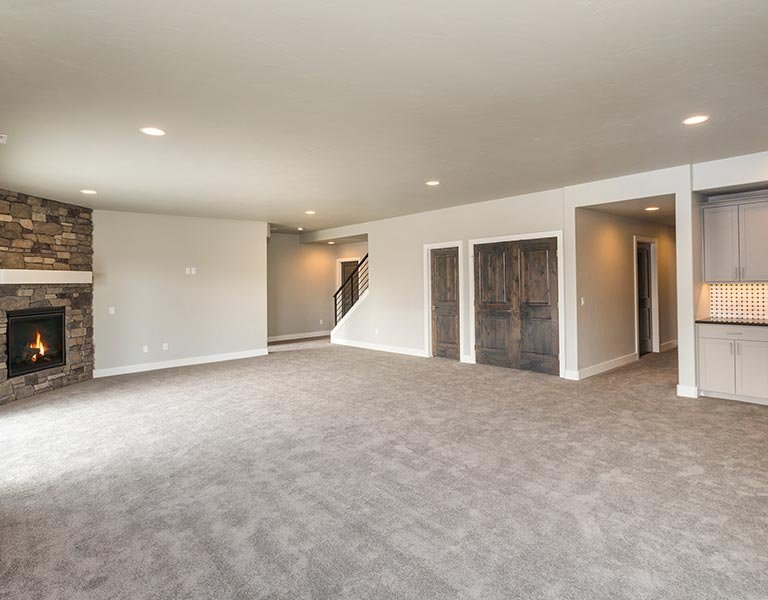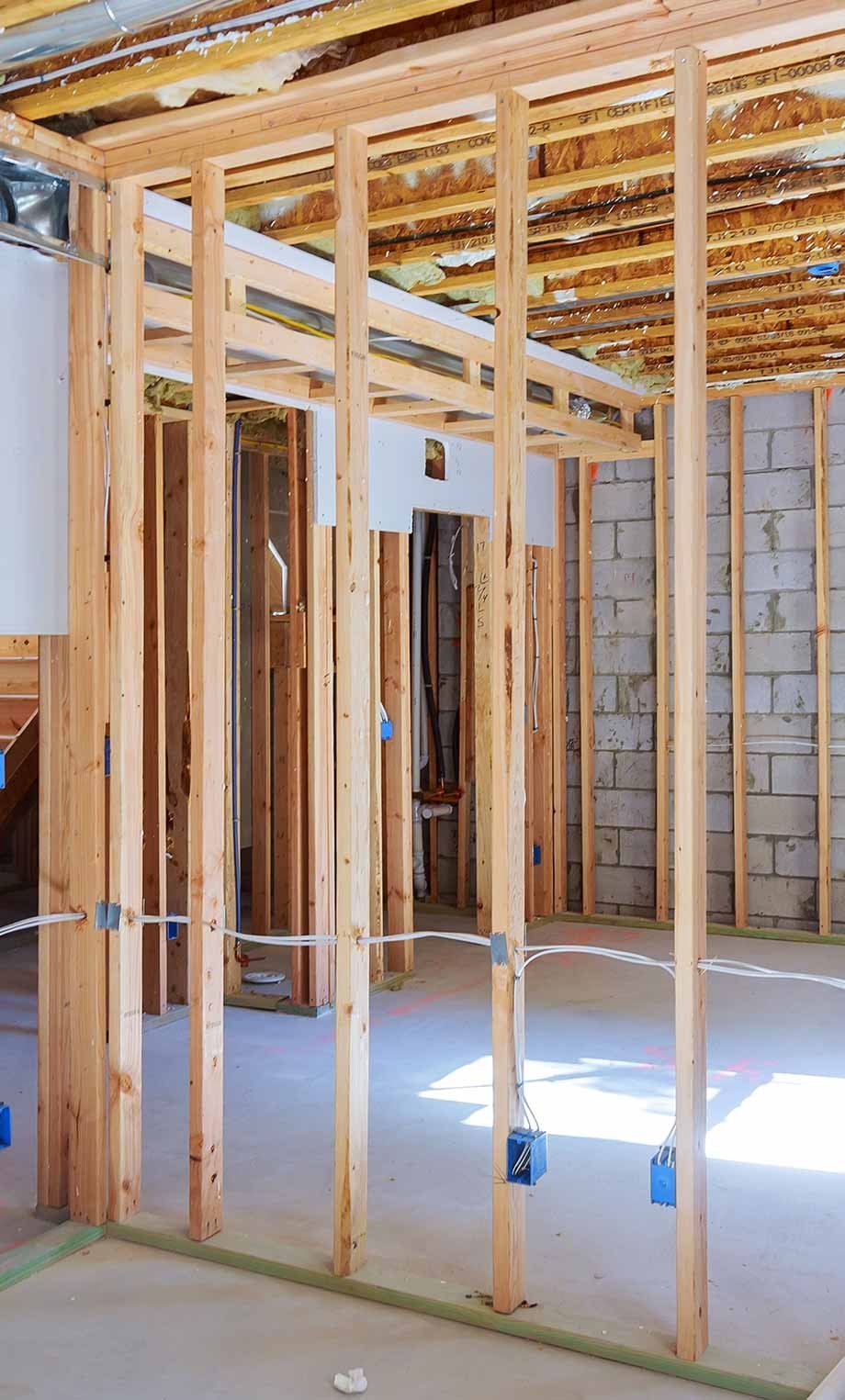Basement Remodeling
Unlock the hidden potential of your basement. Turn your unfinished basement into extra living space for a family room, office space, home gym, entertainment area, and with basement remodeling solutions from a licensed and insured carpenter.

Why remodel your unfinished basement?
Finished basements offer homeowners a wealth of opportunities to enhance their living space, increase property value, and cater to their lifestyle needs. From versatile entertainment areas to functional living spaces, a finished basement adds both utility and comfort, transforming underutilized space into a valuable asset within the home.
- Additional living space
- Extra storage space
- Increased home value
- Enhanced functionality
- Improved comfort
- Increased resale potential
Basement Remodeling Services
From initial design concept to construction, our basement remodeling services offer a seamless experience, ensuring that every aspect of the basement renovation is expertly executed to enhance the home's value and livability.
- Framing
- Drywall
- Flooring
- Interior painting
- Ceilings
- Window replacements


Reach Your Basement Remodel Potential
Basement remodels breathe new life into underutilized spaces, offering homeowners the opportunity to expand their living area and customize their homes to fit their evolving needs and preferences. Here are some potential ideas for your basement remodeling project.
Laundry Room
Home Office
Playroom
Home Gym
Home Theater
Man Cave
Guest Suite
Apartment
Frequently Asked Questions
The cost to remodel an unfinished basement can vary depending on the size of the basement, the scope of the renovation, the quality of materials, and labor costs. However, on average, homeowners in Massachusetts can expect to pay anywhere from $20,000 to $50,000 or more for a basic basement remodel. This cost typically includes framing, insulation, drywall, flooring, lighting, electrical work, plumbing, and any additional finishes or features desired.
Yes, on average, a well-executed basement finishing project can potentially increase a home’s value by 50% to 70% of the total cost of the renovation. However, the increase in home value resulting from a finished basement depends on the quality of the renovation, the size of the basement, and the local real estate market conditions.
In Massachusetts, homeowners typically need permits for basement remodels if the renovation involves structural changes, electrical work, plumbing alterations, or other major modifications. However, permit requirements can vary depending on local building codes and regulations, so it’s essential to check with their local building department or permitting office to determine the specific requirements for their project.
In general, here are some common scenarios where homeowners may need permits for a basement remodel:
Structural Changes: If the renovation involves altering the layout of the basement, such as adding or removing walls, doors, or windows, permits are usually required to ensure compliance with building codes and safety standards.
Electrical Work: Installing new electrical wiring, outlets, lighting fixtures, or appliances typically requires permits to ensure compliance with electrical codes and safety regulations.
Plumbing Work: If the renovation involves installing or relocating plumbing fixtures, such as sinks, toilets, or showers, permits may be necessary to ensure compliance with plumbing codes and regulations.
Finished Spaces: Converting an unfinished basement into a finished living space, such as a bedroom, family room, or home office, may require permits to ensure compliance with zoning laws, fire safety codes, and building regulations.
It’s important to obtain the necessary permits before starting work on a basement remodel to avoid potential fines, delays, or complications during the renovation process. Additionally, permits help ensure that the remodel meets safety and building code requirements, protecting the investment and well-being of occupants.
A basic basement remodel can take anywhere from 4 to 8 weeks to complete, while more extensive renovations may take several months or longer.
Whether you need a general contractor for a basement remodel depends on the scope of the project, your level of expertise in construction and remodeling, and your availability to oversee and manage all aspects of the renovation.
The terms “basement remodel” and “basement renovation” are often used interchangeably, but they imply slightly different approaches to transforming a basement space. A basement renovation typically involves making structural changes or significant upgrades to the basement, such as repairing or replacing damaged walls, floors, or ceilings, waterproofing the basement, or addressing issues related to moisture or mold. Renovations may also include updating plumbing, electrical, and HVAC systems to improve functionality and safety.
On the other hand, a basement remodel typically focuses on aesthetic improvements and functional enhancements without making major structural changes. Remodels may involve finishing an unfinished basement to create additional living space, adding insulation and drywall, installing basement flooring, and upgrading lighting or fixtures to make the basement more comfortable and inviting.
While both renovations and remodels aim to improve the basement, basement renovations tend to be more comprehensive and may address underlying structural issues, while remodels primarily focus on enhancing the appearance and livability of the space.
Basement Remodeling Ideas
Explore endless possibilities for transforming your basement into a personalized haven with our collection of remodeling ideas and inspiration. From cozy family retreats to sophisticated entertainment spaces, discover creative designs, innovative layouts, and practical solutions to unlock the full potential of your basement and elevate your home's comfort and functionality.



